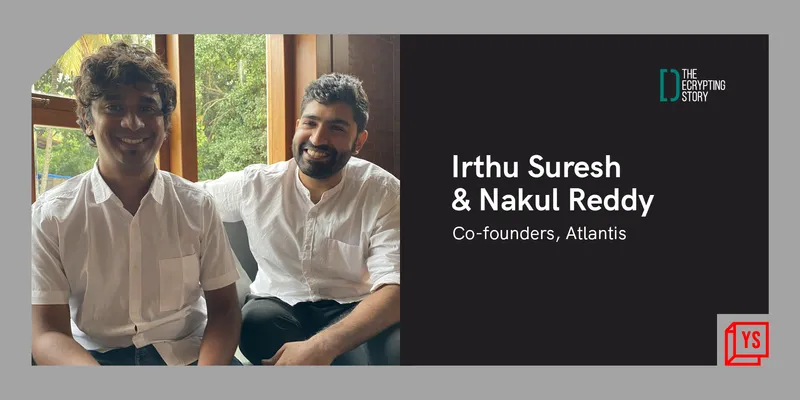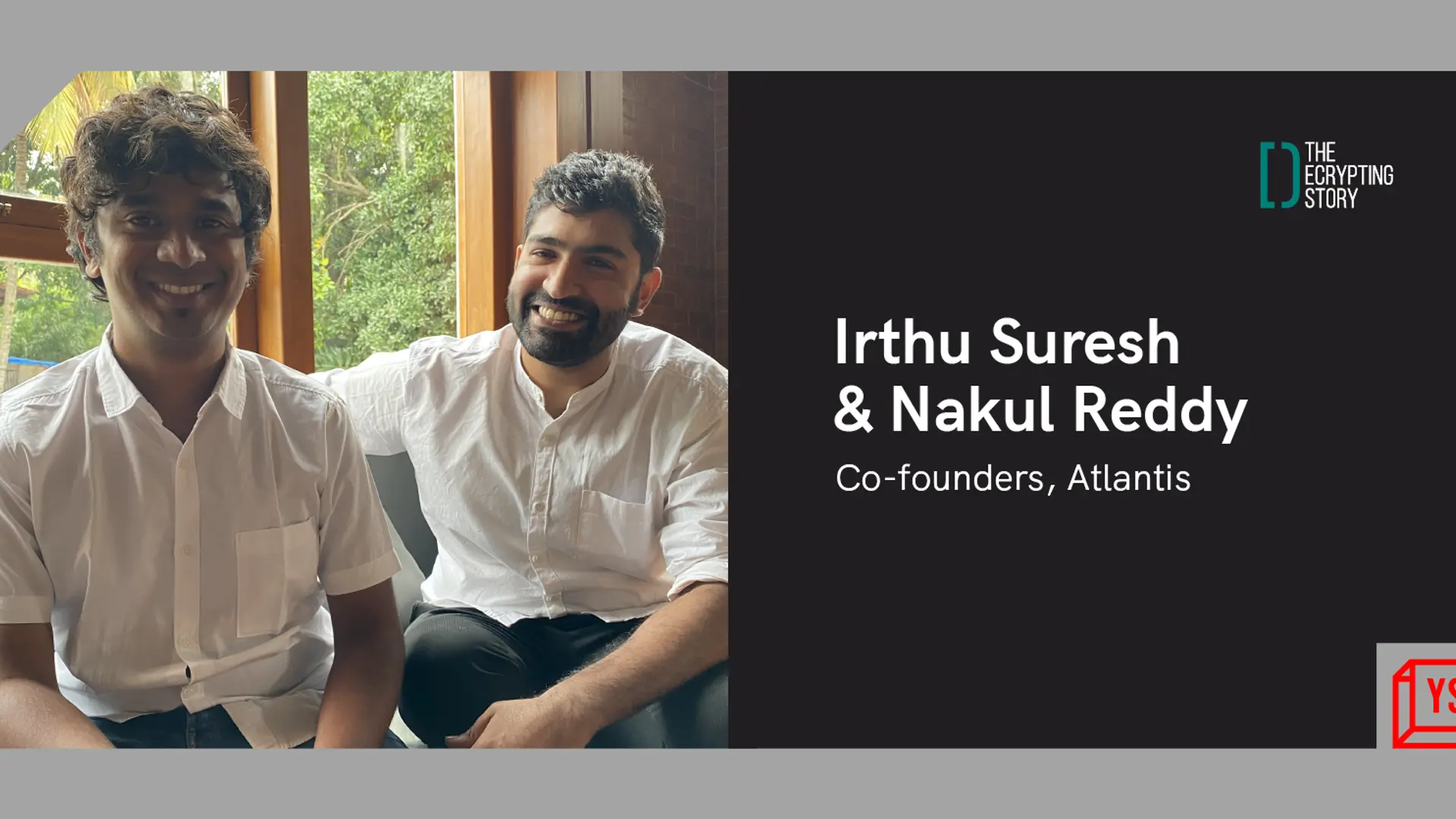Earn by the drop: Atlantis is building a decentralised network to reward users for conserving water
Irthu Suresh and Nakul Reddy are building Atlantis, a decentralised network that rewards users for conserving water with tokens. The core is an engine comprising intelligent maps, integrated markets, and oracles.
It is common knowledge that blockchain technology has been finding applications across numerous industries such as fintech, supply chain, digital asset management, gaming, etc. But did you know it is also being used to conserve water?
Meet school batchmates and mechanical engineers Irthu Suresh and Nakul Reddy who started Atlantis, a decentralised, peer-to-peer (P2P) water management project.
The duo’s terrible experiences with severe water shortage in Bengaluru, as well as Irthu’s difficulties in standardising drinking water supply for offices led the childhood friends to try and solve water stress.
“When I was working to provide offices with supplies, it was challenging to ensure each office got the same grade of water. The condition of water manufacturing facilities was appalling, and there was no quality control,” Irthu says.
So, in 2019, the two started building a marketplace dedicated to water and a water database—like a map—using GIS Resource Mapping.
How Atlantis works
A P2P water network, Atlantis is the decentralised project under the larger banner of Hydrop, the co-founders’ broader water services project.
Atlantis helps increase access to safe water, incentivises harvesting and regeneration, and claims to be the only such open water market promoting fair trade on water assets.
The platform is a coordinated effort to mitigate and resolve water stress using decentralised tools, and looks to reward users with its native crypto tokens ($AGUA) for their social impact.
The core of the water network is an engine comprising intelligent maps, integrated markets, and oracles.
According to Irthu, the early-stage entity aims to become the digital layer of connectivity between water demand and supply. Communities and companies will use Atlantis to solve their water stress, and sell and buy water among each other.
As per the project’s whitepaper, a user can map their water systems, monitor water quality and supply at a specific location on the map, discover water solutions, set up water conservation solutions at their premises, participate in network activities, and earn tokens while performing all the above activities.

Focus areas and traction so far
The company is currently focused on digital natives in water-stressed megacities like Bengaluru and sectors that are highly dependent on the water supply to operate their businesses, such as textiles, paint, and manufacturing.
“Only decentralisation makes it possible to build a people’s network. However, since water is a physical, operationally-intensive industry, we realise some of our efforts will be in Web2 while some others will be in Web3,” Irthu says
“We are building the decentralised network on Ethereum and Polygon, and currently have a prototype that will be tested by 5,000 users in the next few months.”
The bootstrapped startup’s similar service in Web 2—covered under the Hydrop banner—has over 11,000 users, it claims.
Atlantis has also had some promising experiences with its pilot projects with DTDC and The Leela Palace. For DTDC, the project has been helping standardise the drinking water supply. For The Leela Palace, Atlantis has been optimising water usage, right from audit to conserving and regenerating it.
“Further, service providers can also login to the marketplace and pick up certain tasks related to water management at certain locations. We have auditors signed up to Atlantis, and they can assess projects that they pick,” Irthu adds.

The future of Atlantis
Many of Atlantis’ core components necessitate the use of blockchain technology, such as decentralisation, transparency, a trustless system, and tokens to incentivise and reward social impact.
In the near future, it plans to reach out to 10,000 testers and community members on its decentralised network (and gradually turn into a DAO), develop its website, and activate five pilot locations (two in India and three across the Middle East, Africa, and western North America).
The co-founders are also looking to consolidate their core team, iron out token economics, and deploy the Beta version of Atlantis by Q3 2022.
Edited by Saheli Sen Gupta





